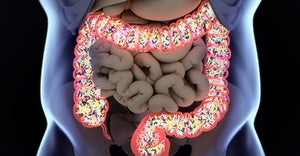Circadian Rhythms and Melatonin Go Hand-in-Hand

Since peripheral tissues, human leukocytes, fibroblasts, adipose tissue, and even pancreatic islets have been observed with clock gene expression, it is no wonder that circadian rhythm disturbances have been found to affect overall health, performance and well-being.
Circadian rhythms have been found in brain regions, the retina and peripheral tissues. Even animal tissue explants have been explored and show evidence of an endogenous clock in many peripheral tissues. Surprisingly, circadian rhythms have also been identified in cultures of immortalized cells. While the suprachiasmatic nuclei (SCN) is the main driver of circadian rhythms, there is also evidence of the importance of circadian clocks outside of the SCN.
An interesting analogy used by Jonathan D. Johnston at the University of Surrey, UK, compared the SCN to a conductor overseeing individual musicians. In other words, the peripheral tissues of the body are able to operate on their own, but the SCN directs them to achieve “optimal overall output.” In fact, Johnston states that human studies identify, “up to 20% of the metabolome is under 24 h output.” The SCN has also been shown to synchronize endocrine and neuronal pathways, such as the secretion of glucocorticoids and the tone of the autonomic nervous system. This may be why food intake is indirectly dictated by the SCN. Diurnal rhythms have also been reported for many adipokines, such as leptin, chemerin, lipocalin and vistafin. Evidence points to postprandial insulin responses reacting better to circadian rhythms, rather than length of time awake.
Melatonin’s effect on the SCN can help entrain circadian rhythms. The hormone is known for its chronobiotic, hypnotic, anxiolytic, analgesic, antidepressant and positive cognitive effects. Decreased melatonin production reflects the circadian system, probably because the SCN is important to the expression of these rhythms. Given the connections between melatonin and the body’s endogenous clock, it’s not a far stretch to see low nocturnal melatonin associations with risk of type 2 diabetes and cancer. Melatonin disruptions have also been implicated in jet lag, sleep problems and immune system issues. In September 2014, authors fromChronobiology International determined that chronic disruptions of circadian rhythm can be harmful.
The easy answer to promote healthy melatonin levels and circadian rhythm health here is to simply go to bed earlier and get a good night’s sleep. For some, however, it may not be that easy. For those who have insomnia, work night shifts, or prefer to stay up late, the question how much of it is genetic? Is it a genetic inclination to be awake at night, to be unwilling to go to bed, or are life circumstances largely responsible for keeping people up at night? These questions have led scientists to examine the propensity towards “eveningness.”
Specific gene variants of canonical circadian genes Clock and Bmal-1 have shown evening preference in several genetic studies. These same genes, however, also showed “resistance to weight loss, metabolic syndrome and susceptibility to type 2 diabetes.” Evening types had a 2.5-fold odd ratio for type 2 diabetes, compared to morning types, according to a large cross-sectional Finnish study. Sleep duration, nor sleep sufficiency were apparently of any influence. Other cohorts associated “eveningness” with the increased risk of metabolic syndrome and diabetes. Melatonin has been shown to modulate insulin secretion through complex cascades involving secondary messengers, and possibly through alpha-cell stimulations. Isoforms of melatonin receptors have been found on pancreatic alpha and beta cells. Whether exogenous supplementation will affect a positive change in type 2 diabetics needs further studies, although in one study using prolonged-release melatonin administration, HbA1c levels improved significantly at 5 months, as did sleep efficiency and reduced wake time after sleep onset.
Melatonin supplementation has been examined for a variety of causes relating to assorted health problems in which low melatonin has been implicated. If low melatonin presupposes some of these conditions, it seems that more studies need to focus on just sleep or circadian factors. Insomnia, however, has been studied, and in 2005 a review of 17 studies showed melatonin supplementation significantly reduced sleep onset latency, while it also increased sleep efficiency and total sleep in healthy adults.
- David Brady







Comments 0